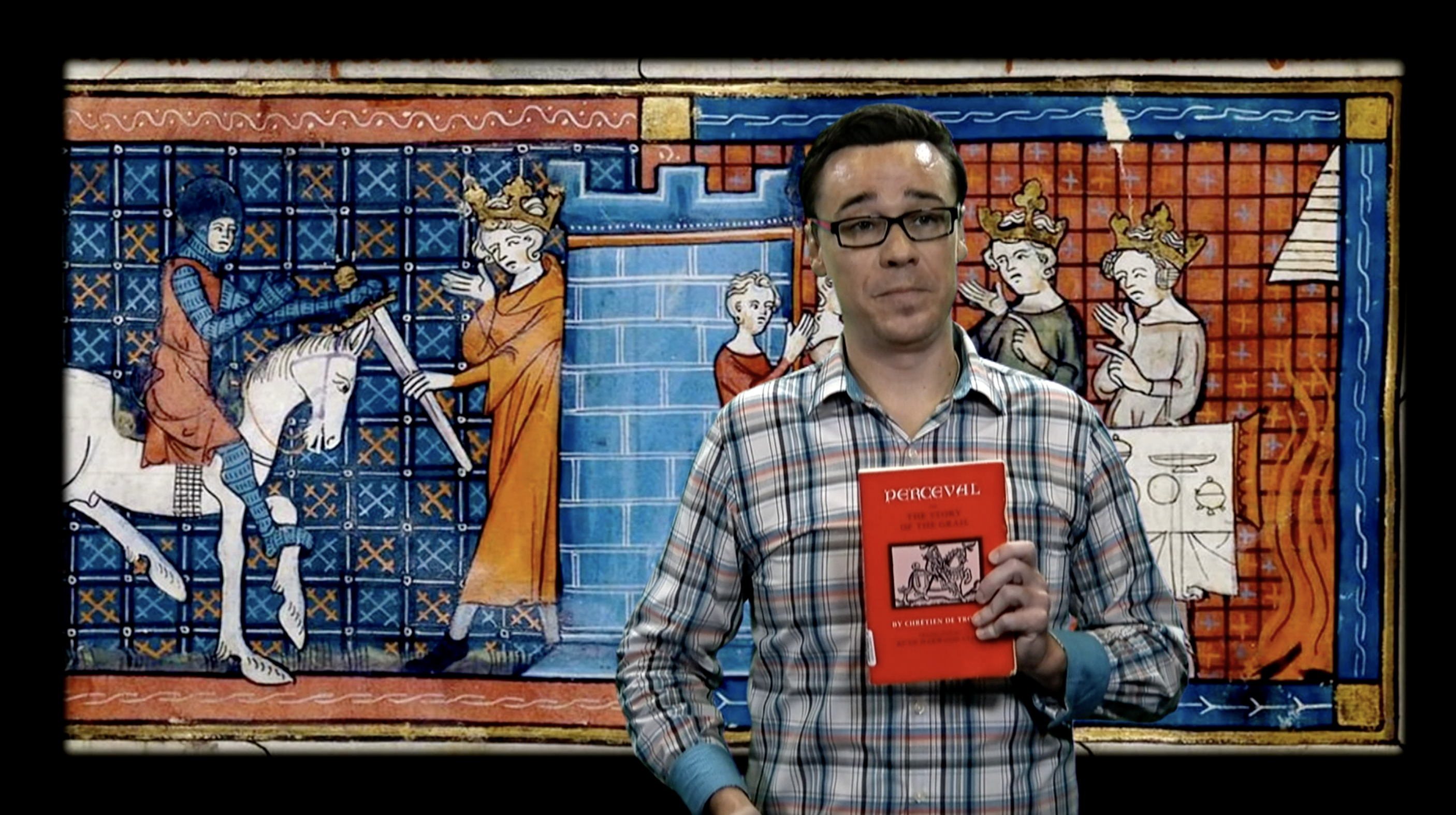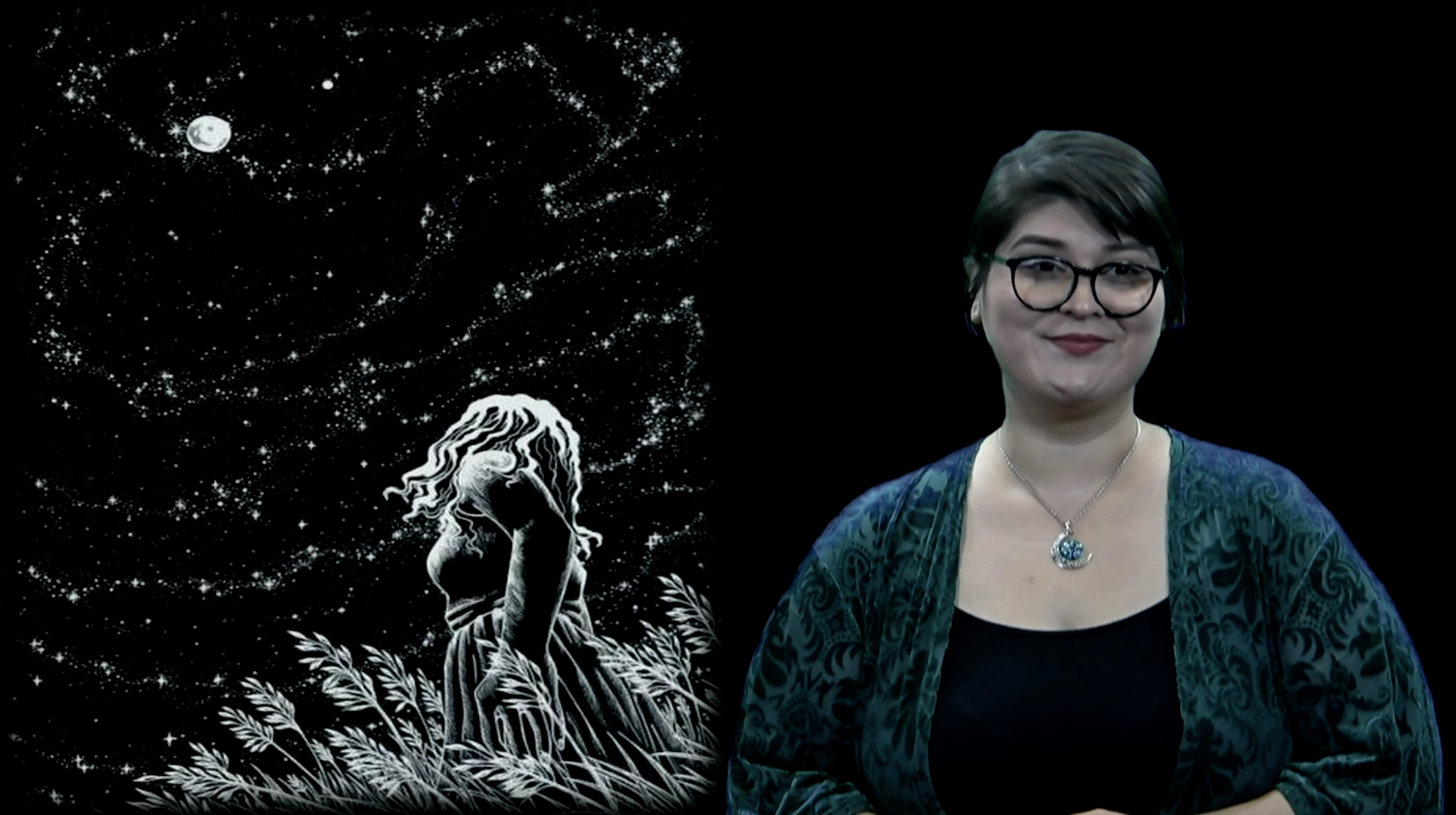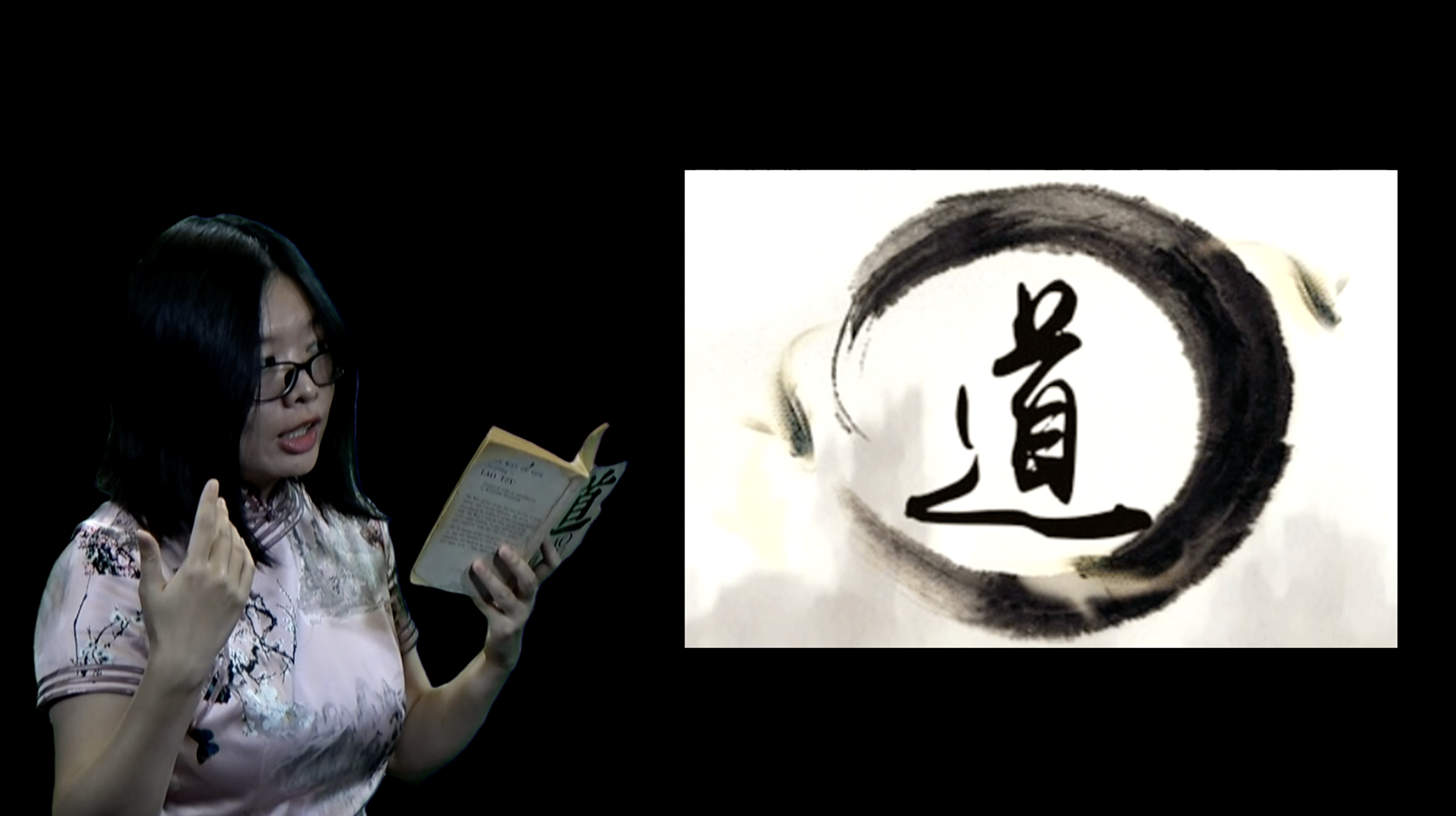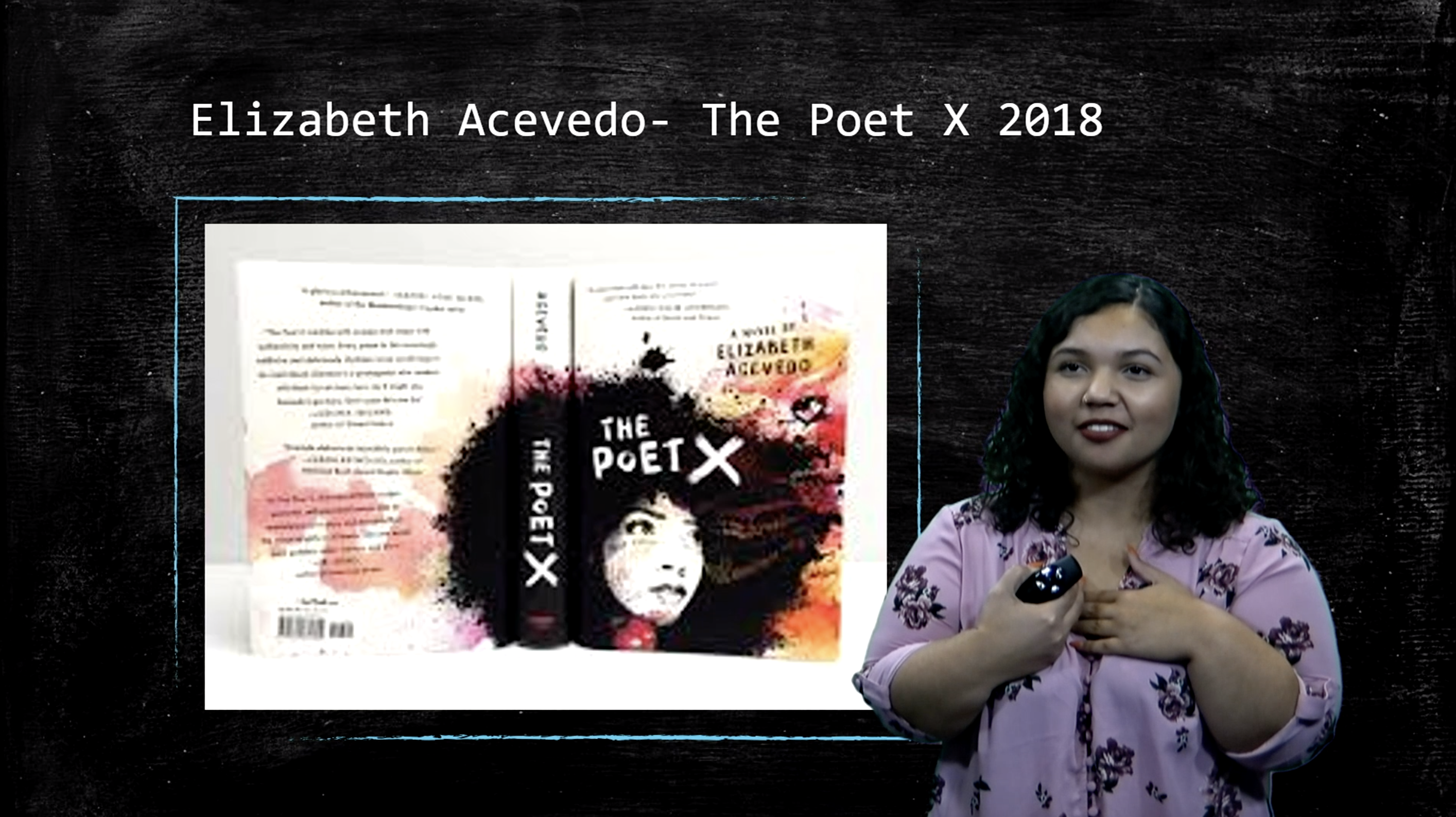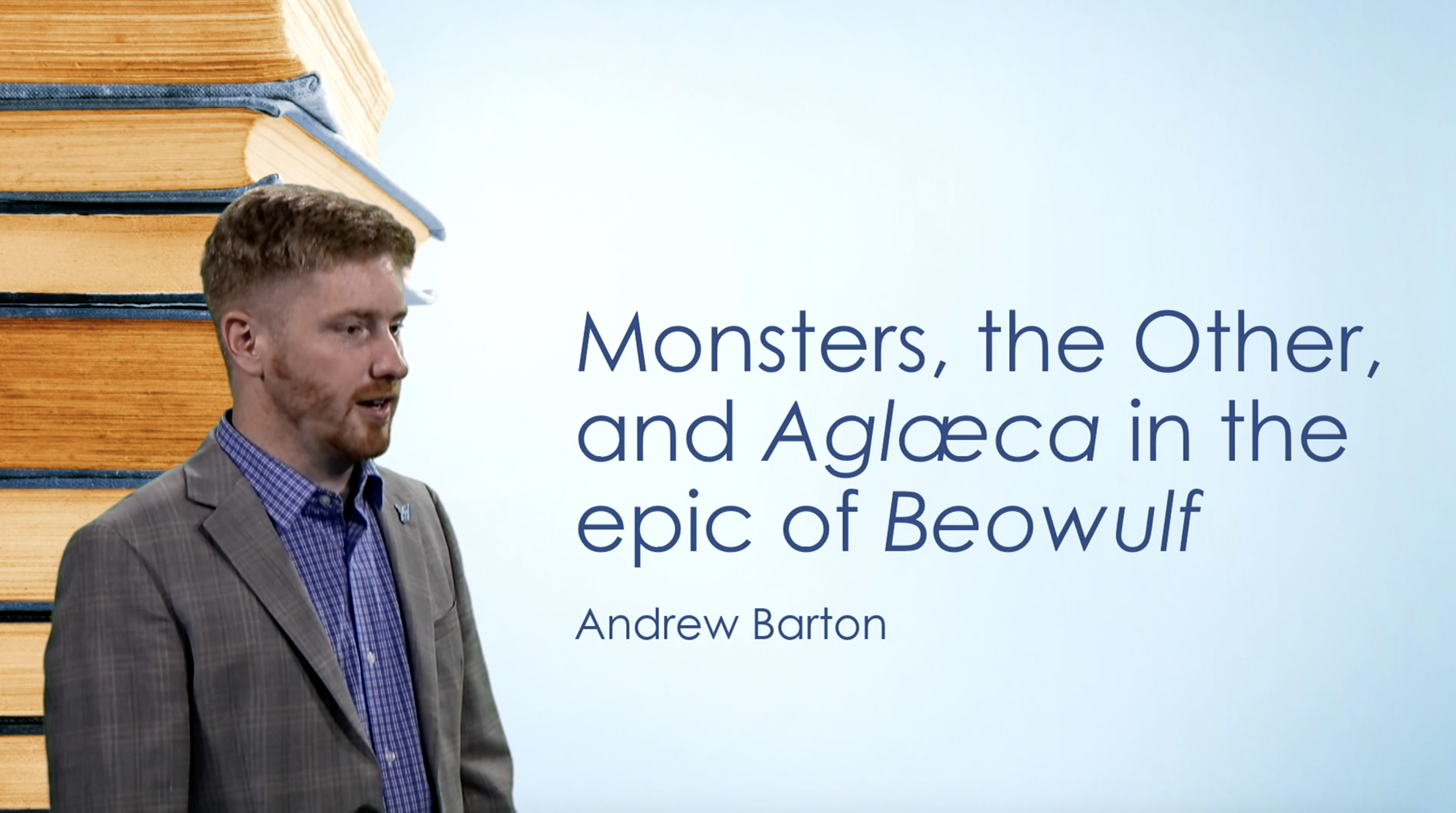Diverse Teaching, Diverse Learning Series
Overview
The Diverse Teaching, Diverse Learning Series seeks to showcase contemporary interpretations of canonical literary works. From Borderlands Theory to Disability Studies to Monster Theory, the series celebrates diverse frameworks and perspectives that represent those on the cutting edge of critical literary scholarship today.
Produced by Lea Colchado, Amanda Scott, and Dr. Nancy Wilson
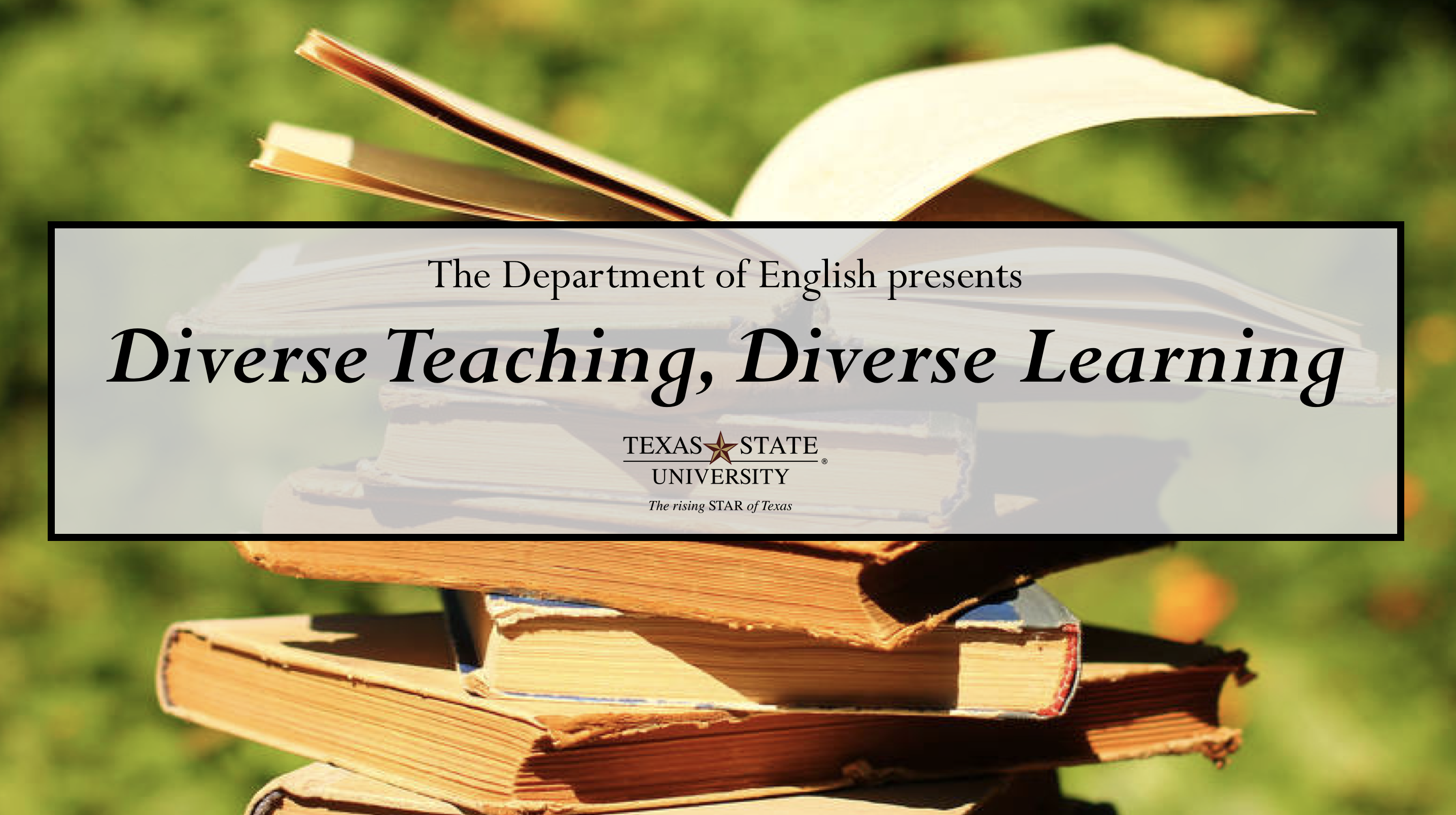
Video Gallery
Shaun Ford
Medieval Made Modern: Chrétien deTroyes' Perceval Through the Lens of Disability Studies
Lea Colchado
Slumber of Sins & the Shadow-Beast: Teresa de Cartagena's Writings Through an Anzaldúan Lens
Rui Ma
Identify One with Nature: Lao Tzu's Way of Life and its Influence on Western Culture
Serena Villa
The Importance of Discovering and Using Voice through an Afro-Latina Perspective
Andrew Barton
Monsters, the Other, and Aglæca in the Epic of Beowulf
More About the Presentations & Presenters
-
Medieval Made Modern: Chrétien deTroyes' Perceval Through the Lens of Disability and Autistic Studies
Although Chrétien de Troyes wrote Perceval or The Story of the Grail nearly a millennium ago, the characters he created have influenced tales of heroism ever since. Interestingly, Perceval’s markedly “odd” behavior—his obsessive interest in the parts of knighthood, his lack of reciprocation in conversation and interaction, his lack of decorum and disregard of social mores, and his overly literal interpretations of his mother’s instruction regarding the code of chivalry—correspond to commonly reported Autistic characteristics. Because Perceval is also a capable, heroic, and good knight who feels empathy, viewing Perceval as an Autistic character might enable a contemporary audience to overturn stereotypes of Autistic people and treat them with greater humanity.
Shaun Bryan graduated summa cum laude with B.A. in Sociology in 2013. He went on to receive two M.A.s in Rhetoric and Composition and in Philosophy and Ethics in 2015 and 2017, respectively. He has written several journalistic articles regarding disability rights and employment issues within the disability community that have gone viral garnered support from well-known disability rights activists and disability studies scholars. Shaun is presently working on a book prospectus for a book project in which he proposed to present readers with his and other disabled peoples' experiences in searching for meaningful employment and tackling the disability unemployment crisis. His written work encompasses the intersections of disability studies, Autistic cultural studies, disability rights, and conceptual models of social paradigms. His work on the character of Perceval was his first foray into critical disability studies.
See Shaun's latest research here.
-
The Importance of Discovering and Using Voice through an Afro-Latina Perspective
Elizabeth Acevedo's The Poet X explores what it's like to come of age as an Afro-Latina. Language and music blend together in order to create a heartfelt picture of the Afro-Latina experience, all while dealing with the same events that many other teenagers learn to navigate. Spoken word ends up being 15 year old Xiomara's outlet as she handles these events, and while that plays a huge role in the book, it begins an internal conversation for the reader that asks them to figure out what their outlet will be.
Serena Villa is currently a junior at Texas State majoring in Psychology and minoring in English. Her passions include people and politics. She hopes to eventually make a difference in the lives of others through either counseling, writing, or activism. She currently plans to start another spoken word group on campus.
-
Slumber of Sins and the Shadow-Beast: Looking at Teresa de Cartagena's Writings Through an Anzaldúan Lens
Teresa de Cartagena was one of the most powerful and influential Spanish writers and mystics of the fifteenth-century. De Cartagena challenges the patriarchal hegemony within the Church when she writes her two treatises, Arboleda de los Enfermos, and Admiraçion operum Dey. Gloria Anzaldúa’s theory about Borderlands can be applied to Teresa de Cartagena in the sense that de Cartagena also talks about borders: borders on her spiritual and material family, on her spiritual and physical body, and borders on her theological prepositions. Teresa de Cartagena holds much in common with Gloria Anzaldúa, both are women who have crossed multiple borders, learning how to manipulate tongues in order to survive and make sense of a harsh and unforgiving world around them. Anzaldúa introduces the Shadow-Beast; a suppressed nature that compels the individual to rebel and indulge in their forbidden desires. All the while, Teresa de Cartagena keeps her own wants and desires, her rebellious Shadow-Beast, at bay. Gloria Anzaldúa's experience as a marginalized voice and in her new mestiza consciousness theory provides brilliant insight into the world of Teresa de Cartagena. By peering into de Cartagena's life through an Anzaldúan lens, one is able to see de Cartagena's humanity, rebellion, and her passionate steel resolve.
Lea Colchado was born in Harlingen, Texas and raised in Corpus Christi, Texas where she attended Del Mar College. She received her BA in English at Texas State University in San Marcos, Texas. She is currently a graduate student at Texas State University where she works as an Instructional Assistant, Research Assistant, and Coordinator of the Texas State English Diversity Video Series. Colchado has commissioned two poems, Every Child Flies, and Her Unheard Symphony, as well as receiving the 2016-2017 Undergraduate Research Fellowship to continue her research on Sandra Cisneros, Gloria Anzaldúa, Cherríe Moraga, and Ester Hernández at Stanford University and the University of Texas – Austin. She is planning on presenting, “Slumber of Sins and The Shadow-Beast" at the Texas Medieval Association conference this October at Texas State.
-
Monsters, the Other, and Aglæca in the Epic of Beowulf
Beowulf's Grendel is never fully described, leading to some representations that are quite human (the 2007 Beowulf film) and others quite monstrous (the DC Comics interpretation). In the text itself, Grendel is called "heond on helle" (hell hound), "grimma gæst" (grim demon), and "Caines cynne" (Cain's kin). The fact that the term "aglæca" is used to reference the villainous Grendel, Grendel's mother, and the dragon, but also the heroic Sigemund and Beowulf adds to the ambiguity of who/what Grendel is. Grendel may be "the Other," but perhaps one lesson of Beowulf is that the self/Other binary is not so clear-cut—maybe we are supposed to find the self in the Other and see the human in the monstrous.
Andrew Barton has a B.A. in English and Psychology from Texas A&M University and an M.A. in Literature from Texas State University. He is currently a Lecturer in the Department of English at Texas State University. His scholarly presentations include "The Border Between Things: Grave Liminality in The Graveyard Book"; "The Difference between a Potion and a Drug: Exploring the Borders of Magic and Medicine in Dr. Strange: The Oath"; and "That Was One Good King: Liminality, Old English, and Beowulf."
-
Identify One with Nature: Lao Tzu's Way of Life and its Influence on Western Culture
In this presentation, Rui Ma presents some of the basic ideas of Taoism and its interconnectedness with American popular culture. Taoism as an ancient Chinese philosophy is difficult even for Chinese people to understand and practice. This difficulty lies primarily in its elusiveness and tendency toward self-contradiction. Practicing Taoism strictly as a religion is also impossible because “The tao that can be described is not the eternal Tao” (Daode Jing, Chapter 1). In fact, the more we try to understand it, the more we will find its resonance with our universal human nature—our love for peacefulness and our innate bond with nature. In short, in understanding Taoism, we are more likely to find that we are part of nature rather than against it, a concept that is vital more than ever in an era of growing ecological crisis.
Rui Ma is a second year MFA student in fiction at Texas State University. Before deciding to pursue creative writing, she earned a master’s degree in Public Economics from CEMA (Chinese Economics and Management Academy) at Central University of Economics and Finance in China and a BA in International Economics from Nankai University. Previously, she taught creative writing and critical reading in China for more than ten years. Currently, Rui is at work on a short story collection and her first novel, both focusing on one’s inner journey towards personal truth. While studying economics, she found herself contemplating transcendental issues beyond the realm of human economic and social behaviors such as the relationship of men and nature as well as one’s inner journey towards self-perfection. For Rui, Taoism provides an opportunity to see human knowledge as interconnected rather than divided into western and eastern ideologies.

